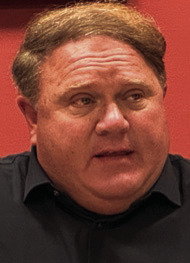Tinkering will protect North Mississippi
By Staff
Paul Erlich, the father of the "science" of zero population growth theories that came to prominence in the 1960s, once observed in a 1971 essay in The Saturday Review: "The first rule of intelligent tinkering is to save all the parts."
Mel Brooks, the beloved comedic film director who gave us such gems as "Blazing Saddles" and "The Producers", had a different take when he said that "bad taste is simply saying the truth before it should be said."
In keeping with those astute observations, let me engage in a little political bad taste by pointing out that when one practices a little intelligent tinkering with the so-called "Community Coalition" redistricting proposal the plan that would have seemed to favor current 4th District Congressman Ronnie Shows in a showdown with current 3rd District Congressman Chip Pickering in that version of the "new" 3rd District it becomes clear that the plan is not going to fly.
The beauty of the "Community Coalition" plan from Shows standpoint is that it creates a diagonal district that encompassed much of Democrat Shows' southwest Mississippi rural base while cutting Republican Pickering out of the crucial GOP strongholds of Rankin and Lauderdale counties.
The Shows-backed "Community Coalition" plan would put Rankin County in the new 1st District and most of Lauderdale County into the new "4th" District that would include the three densely-populated Gulf Coast counties.
For the Democratic Party in Mississippi, the plan looks good 2nd District Democratic Congressman Bennie Thompson's seat is protected as is current 5th District Democratic Congressman Gene Taylor's position in the "new" 4th District. The plan essentially concedes the "new" 1st District to incumbent Republican Congressman Roger Wicker, leaving Pickering to face Shows in a "new" Third District carved to Shows' liking.
Result? Democrats 3, Republicans 1. So why is the "Community Coalition" plan not going to survive in its present incarnation? Because in congressional redistricting, partisan politics is a legitimate, court-protected basis upon which to carve the pie. But it's not the only consideration.
While partisanship and race have dominated redistricting battles in the past, sectional (one's geographic region) and factional (those with common interests) concerns are beginning to impact the process after maps of the proposed "Community Coalition" plan were made public.
The bottom line? The "Community Coalition" plan threatens the safety of Congressman Wicker's seat by presenting the possibility of a primary challenge from Congressman Pickering. In the 1999 gubernatorial race, 1st District counties comprised 38 percent while 3rd District counties comprised 62 percent of the total Republican primary vote in the two districts.
In the 2000 Republican presidential primary in Mississippi, the "old" 1st District comprised 48 percent while the "old" Third District comprised 52 percent of the total GOP primary vote in the two districts.
Basing himself in Rankin County in the proposed "Community Coalition" plan, Pickering could present a formidable challenge to Wicker in a GOP primary. Pickering said last week: "I plan to run in the new 3rd District, but once redistricting is completed, I will have to consider all my options."
The two legislative chairmen of the redistricting process Sen. Hob Bryan of Amory and Rep. Tommy Reynolds of Water Valley are North Mississippians and Wicker constituents. So is House Speaker Tim Ford of Baldwyn.
None of those powerful North Mississippi state legislators want a 1st District Congressman to be elected from Rankin County. A legislative compromise will be struck that ensures that the 1st District will be represented by a North Mississippian. Bank on it.
Sid Salter is Perspective Editor/Columnist at The Clarion-Ledger in Jackson and a syndicated
Mississippi political columnist. Contact him at 601-961-7084, P.O. Box 40, Jackson, MS 39206, or e-mail ssalter@jackson.gannett.com.













